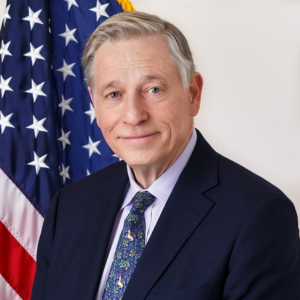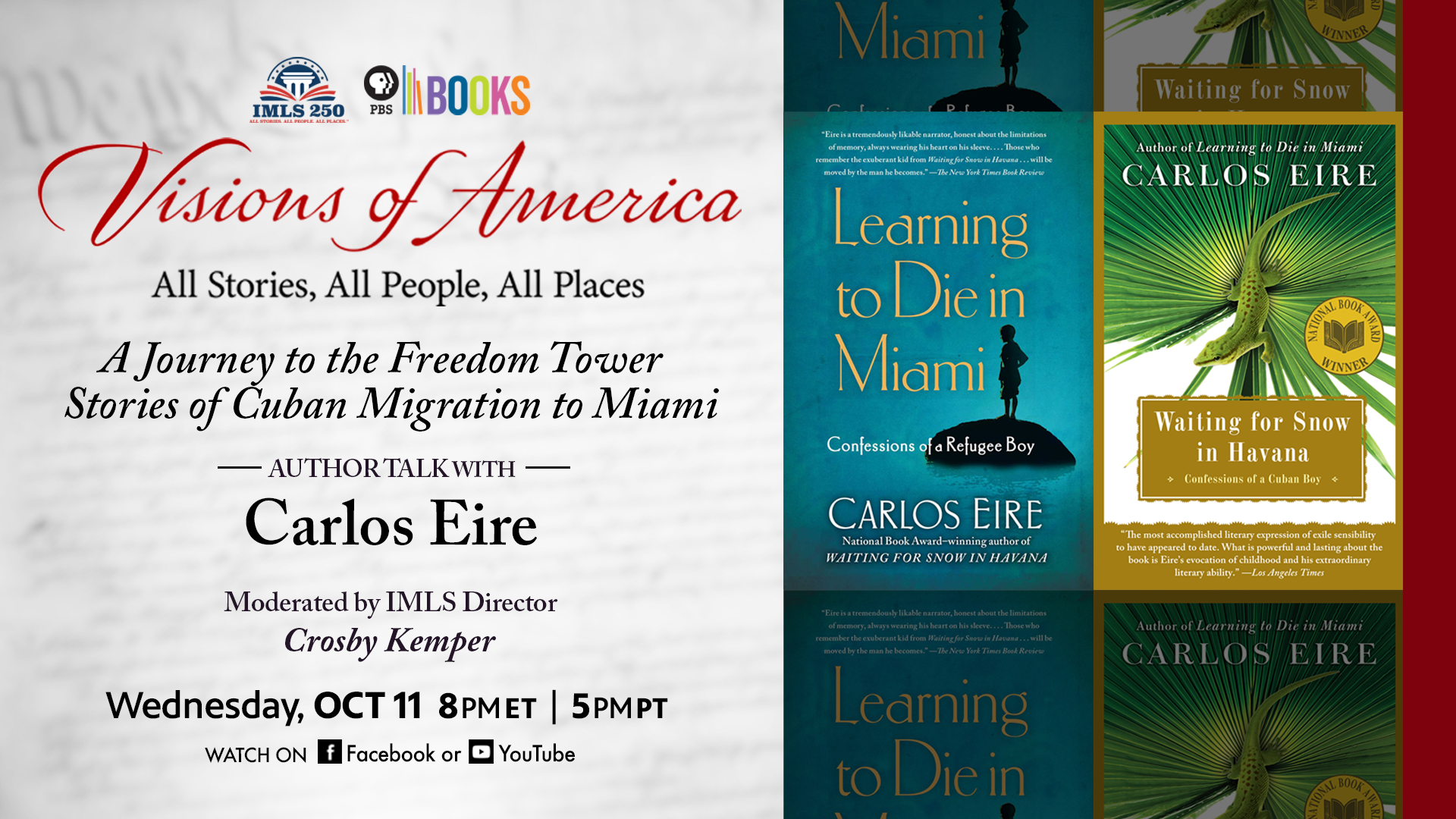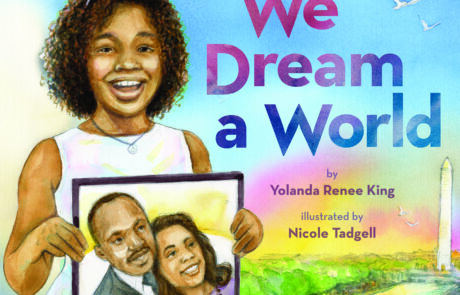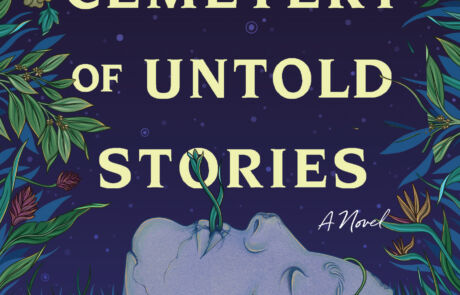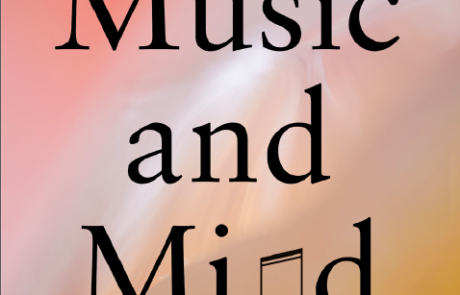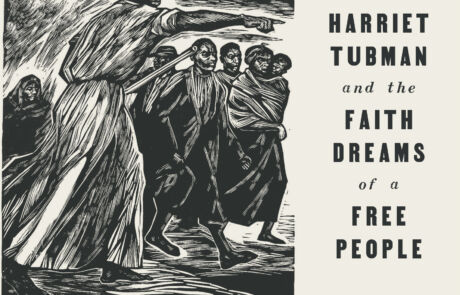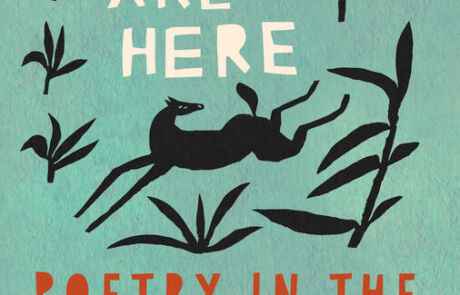Streams on Wednesday, Oct. 11, 2023 8pm ET | 5pm PT
Program Description:
PBS Books and Institute of Museum and Library Services (IMLS) are partnering on “Visions of America: All Stories, All People, All Places,” PBS Books premiered “Visions of America: A Journey to the Freedom Tower – Stories of Cuban Migration to Miami” in September. The inspiration for this episode is Carlos Eire’s “Waiting for Snow in Havana” and “Learning to Die in Miami“. IMLS Director Crosby Kemper speaks with award-winning writer and scholar Carlos Eire to discuss his books, his life, and his experiences as an immigrant, an exile, and an American. Gain personal insights into a Cuban’s experience and Pedro Pan, an unaccompanied children’s exodus from Cuba. As you celebrate Hispanic Heritage Month, don’t miss this opportunity to hear a lesser-known American story.
To hear more about “Visions of America: A Journey to the Freedom Tower – Stories of Cuban Migration to Miami” go to visionsofamerica.org.
About the Author: Carlos Eire
Carlos Eire is a historian of late medieval and early modern Europe at Yale University who focuses on the Protestant and Catholic Reformations; the history of popular piety; the history of the supernatural, and the history of death.
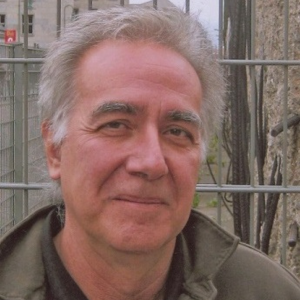
“Waiting for Snow in Havana”
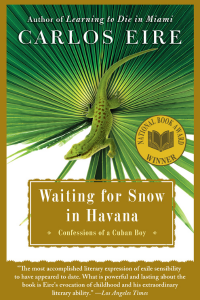
“Learning to Die in Miami”
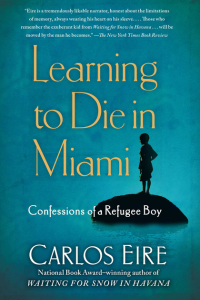
About the Moderator: Crosby Kemper
Crosby Kemper is the sixth director of the Institute of Museum and Library Services. He was commissioned by the White House on January 24, 2020, following his confirmation by the United States Senate. IMLS, an independent government agency, is the primary source of federal support for the nation’s museums and libraries.
